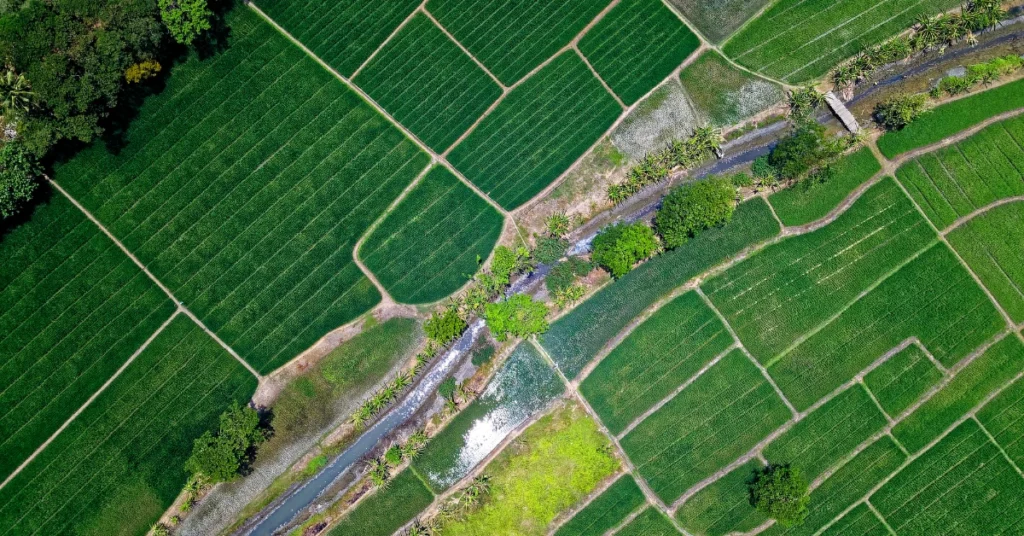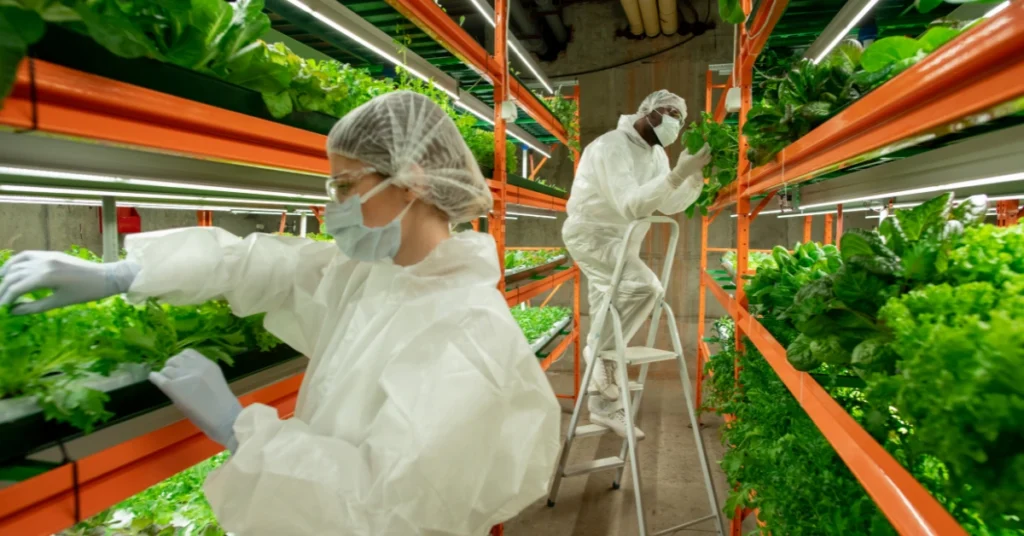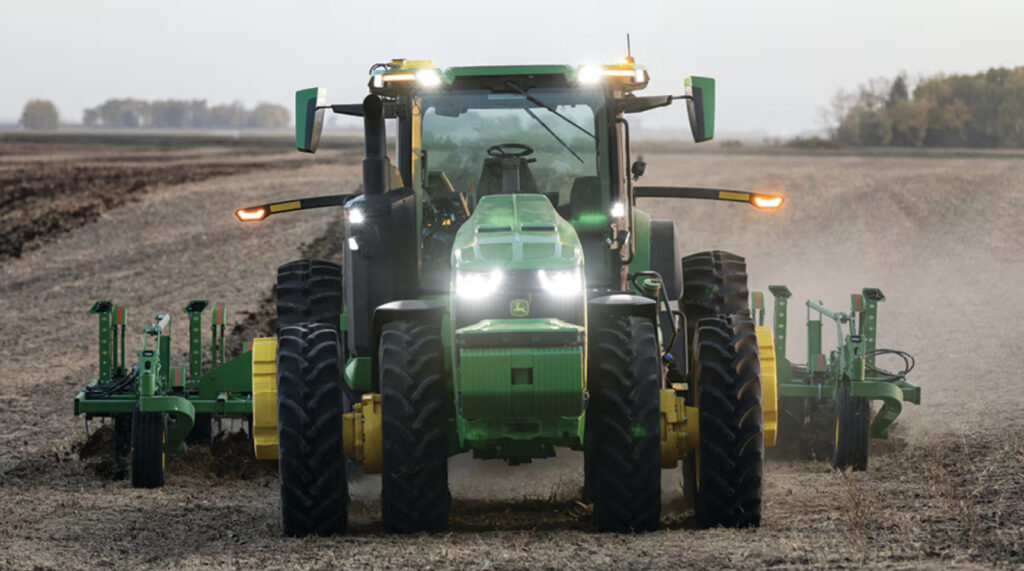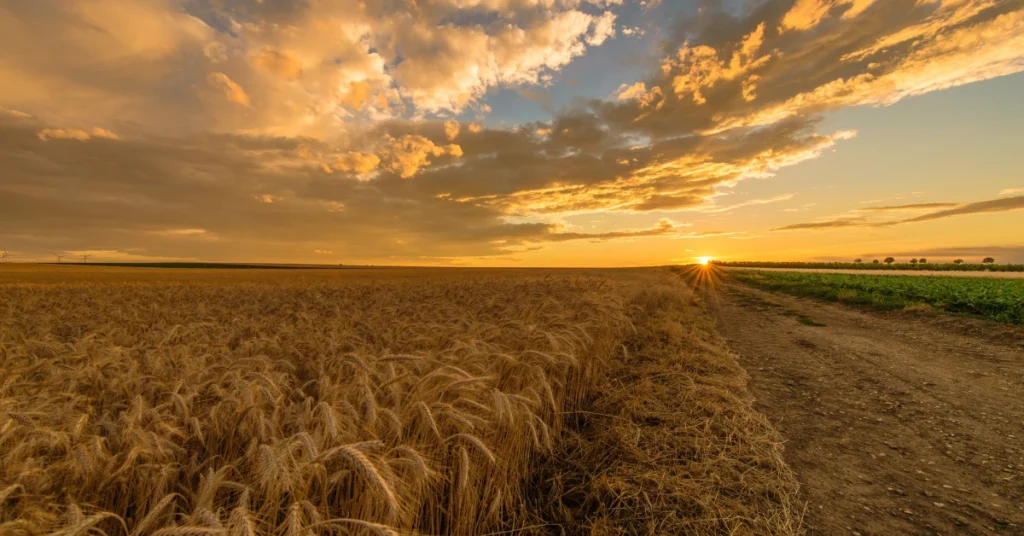Artificial intelligence (AI) is transforming various industries, and agriculture is no exception. From precision farming to crop monitoring, AI-driven technology is helping farmers improve efficiency, reduce environmental impact, and promote sustainable farming practices. By harnessing data and automation, AI enables more accurate predictions, efficient resource use, and optimized crop management, making sustainable farming a reality.
This article explores how AI is revolutionizing agriculture, the benefits of AI-driven practices for sustainability, and real-world applications that are shaping the future of farming.
The Need for AI in Sustainable Agriculture
Addressing Climate Challenges and Resource Scarcity
Climate change and resource scarcity are two major challenges facing modern agriculture. Farmers must adapt to unpredictable weather patterns, water shortages, and soil degradation. AI provides solutions that help manage these issues by offering data-driven insights that promote efficient resource use and adaptability to changing environmental conditions.
Through AI, farmers can make informed decisions that reduce water waste, conserve energy, and maintain soil health, supporting a more sustainable approach to farming.
Increasing Crop Yields with Precision Farming
Precision farming, an AI-driven approach, allows farmers to monitor and manage crops at a granular level. This technique optimizes inputs such as water, fertilizers, and pesticides, ensuring they are applied exactly where and when needed. By using resources more efficiently, precision farming not only boosts crop yields but also minimizes the environmental impact.
AI’s data-processing capabilities make precision farming more accessible, helping farmers maximize productivity and reduce waste.
To learn more about how precision farming is revolutionizing agriculture, check out this article from Scientific American on Precision Farming. It explains how advanced technology is helping farmers increase efficiency and reduce environmental impact.
Reducing Environmental Impact
Conventional agriculture often relies on heavy chemical use, which can harm soil, water, and biodiversity. AI technology helps mitigate these environmental effects by enabling sustainable practices like targeted fertilization and minimal pesticide use. By using AI-powered insights, farmers can reduce chemical inputs, leading to healthier ecosystems and more environmentally friendly agriculture.
This shift toward eco-conscious farming practices contributes to the long-term sustainability of agricultural systems worldwide.

AI Applications Transforming Sustainable Farming
1. Crop Monitoring and Disease Detection
AI-powered imaging and sensors can identify crop diseases and pests early, allowing farmers to take timely action. Machine learning algorithms analyze images from drones and satellites to detect abnormalities in crops, such as discoloration or unusual growth patterns. Early detection helps prevent disease spread and reduces the need for chemical pesticides.
This technology not only protects crop health but also reduces environmental impact by limiting pesticide use.
2. Soil and Water Management
AI-driven sensors and data analysis play a crucial role in soil and water management, ensuring optimal crop growth while conserving resources. Soil sensors provide data on moisture levels, nutrient content, and pH, which AI systems use to make precise recommendations for irrigation and fertilization.
These insights help farmers avoid over-irrigation and nutrient runoff, promoting soil health and reducing water waste, key components of sustainable farming.
3. Automated Farming Equipment
Automated tractors, drones, and harvesters equipped with AI can perform tasks like planting, watering, and harvesting with minimal human intervention. These machines use GPS and AI algorithms to navigate fields efficiently, reducing fuel usage and minimizing soil compaction.
By increasing operational efficiency, AI-powered equipment supports sustainable farming practices, reduces labor costs, and helps farmers manage large areas with precision.

The Benefits of AI for Sustainable Agriculture
Increased Efficiency and Productivity
AI enables farmers to maximize productivity by analyzing large volumes of data to predict crop yields, optimize planting schedules, and streamline operations. This level of efficiency allows farmers to grow more food with fewer resources, meeting the demands of a growing population without compromising sustainability.
AI-driven insights help farmers make smarter decisions, leading to higher yields and more resilient crops.
Reduced Chemical Usage
One of the main benefits of AI in agriculture is the reduction of chemical inputs. By identifying specific areas in need of treatment, AI minimizes the use of fertilizers and pesticides, which protects the environment and conserves resources. This targeted approach to crop management also reduces chemical runoff into waterways, contributing to cleaner ecosystems.
Lower chemical usage promotes healthier soil and reduces the agricultural sector’s environmental footprint.
Adaptation to Climate Change
AI-driven technologies help farmers adapt to climate change by predicting weather patterns, assessing soil conditions, and managing water usage. Machine learning models can provide accurate climate forecasts, allowing farmers to make proactive adjustments to planting schedules, irrigation, and fertilization.
By improving adaptability, AI supports sustainable agriculture practices that are resilient to changing weather conditions.

Real-World Examples of AI in Agriculture
John Deere’s Autonomous Tractors
John Deere has developed autonomous tractors that use AI and GPS to navigate fields and carry out farming tasks independently. These tractors are capable of planting, tilling, and harvesting with precision, reducing fuel consumption and increasing operational efficiency.
Autonomous farming equipment reduces the environmental impact of traditional machinery while supporting efficient, large-scale farming.
For a look at the latest advancements in autonomous farming, explore John Deere’s insights on agricultural autonomy. This resource highlights how autonomous technology is transforming farming practices, improving efficiency, and supporting sustainable agriculture.

IBM’s Watson for Predictive Analytics
IBM’s Watson is being used in agriculture to provide predictive analytics that helps farmers make data-driven decisions. By analyzing factors like weather patterns, soil health, and crop health, Watson offers valuable insights that aid in crop management and resource allocation.
This AI-powered tool allows farmers to make proactive adjustments, promoting sustainable farming by optimizing resource use.
Precision Hawk’s Drone Technology
Precision Hawk uses drones equipped with AI to monitor crop health and analyze agricultural data. These drones capture high-resolution images of fields, which are then analyzed to detect areas of stress, nutrient deficiencies, or pest infestations. The data enables farmers to address issues promptly, reducing chemical use and supporting crop health.
Precision Hawk’s technology offers an eco-friendly alternative to traditional crop monitoring, promoting sustainable farming practices.

Challenges and Considerations for AI in Agriculture
Data Privacy and Security
As AI technology collects and analyzes large amounts of data, data privacy and security are important considerations. Farmers and technology providers must ensure that data is protected and used responsibly. Establishing data-sharing agreements and cybersecurity measures can help address these concerns.
By prioritizing data privacy, the agricultural industry can build trust in AI-driven solutions, facilitating wider adoption of these technologies.
Accessibility for Small-Scale Farmers
AI technology is often costly, which can make it difficult for small-scale farmers to access these innovations. Ensuring that AI tools are affordable and accessible is essential for making sustainable farming practices available to all. Government subsidies, grants, and partnerships can help bridge the gap, allowing small farmers to benefit from AI advancements.
Inclusion of small-scale farmers in the AI revolution is vital for promoting sustainable agriculture across all levels.
Environmental Impact of AI Hardware
While AI supports sustainability, the hardware involved (e.g., sensors, servers) can have its own environmental footprint. Developing energy-efficient AI systems and using renewable energy sources in data centers can help mitigate this impact.
As the industry grows, balancing the benefits of AI with its environmental costs will be crucial to ensure overall sustainability.

AI is playing a transformative role in agriculture, making sustainable farming practices more efficient, accessible, and resilient. From precision farming and crop monitoring to autonomous machinery, AI technology helps farmers reduce environmental impact, increase yields, and adapt to climate challenges. By adopting AI-driven solutions, the agricultural sector can address the pressing need for sustainable food production.
As AI continues to evolve, it will become an even more integral part of agriculture, supporting farmers in their journey toward sustainability. By embracing AI, the future of farming can be both productive and eco-friendly, ensuring a healthier planet for generations to come.
For a deeper dive into how technology supports eco-friendly practices, check out our article on How AI is ShapingSustainable Agriculture. This guide explores the role of artificial intelligence in promoting efficient, sustainable farming methods.






















